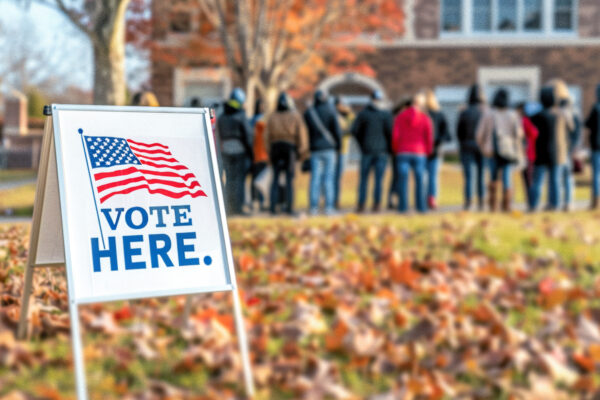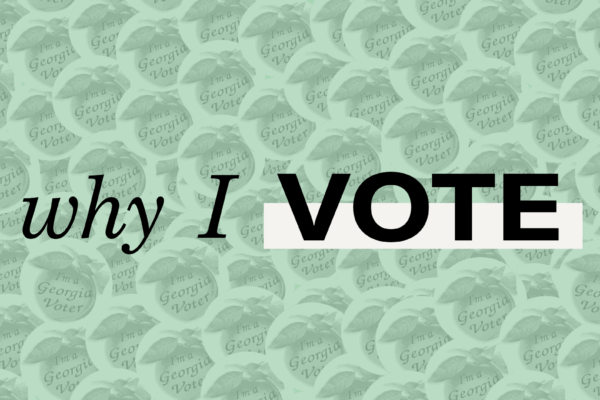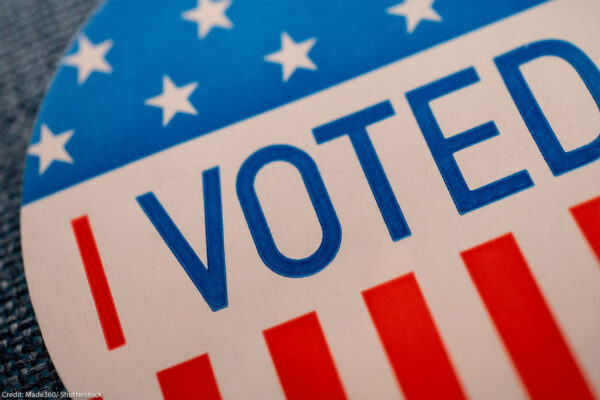At the last meeting of an elections study committee in Americus, lawmakers ended their statewide tour discussing processes. The ACLU of Georgia highlighted people – the 1.3 million Georgians with disabilities who face barriers to vote.
The study committee began a series of meetings in August to review Georgia’s election procedures, seeking ideas for policy changes before the 2026 legislative session.
Rachel Glover, associate director of the ACLU of Georgia’s Voter Access Project, reminded legislators that state law requires every polling place to be accessible to elderly and disabled voters.
“Accessibility shouldn’t be optional or conditional — it must be treated as a mandatory policy,” she told the members of the Blue-Ribbon Study Committee on Elections Procedures.
Glover and volunteers with our Local Election Advocates and Defenders (LEAD) Program gave public comments at most hearings.
Making matters worse
About 16 percent of the state’s electorate lives with a disability. Their turnout lags other voters by nearly eight percentage points; among the largest gaps in the country.
While many factors widen the gap, Senate Bill 202, passed in 2021, added barriers for all voters. Legislators designed the law to suppress votes, especially among voters of color. It banned Georgians from providing food and water to voters waiting in long lines more than 150 feet from the polls and required voters to include their birthdate on absentee ballot envelopes, but a federal judge blocked those parts of the bill.
The law impacts disabled voters by limiting who can help them file absentee ballots to family, household members, or caregivers. The threat of criminal penalties discourages people from helping, even when it is allowed. Previously, disabled Georgians relied on friends or neighbors to help mail their ballots. People in nursing homes or homeless shelters often asked staff to help, as well.
Glover gave an example of a blind voter in DeKalb County who fears prosecution for asking a trusted friend for help. With no nearby family, she feels forced to vote in person, which is a burden due to her transportation challenges.
SB 202 also limits drop boxes to indoor, early voting locations with no availability on Election Day. The relocation means a 76-year-old voter with arthritis and knee replacements now walks a long distance from the parking lot, making voting more physically demanding.
The application of laws directing voter accessibility is inconsistent, Glover said, and vague language allows counties to opt out when accessibility is not practicable.
In last year’s election, the ACLU of Georgia’s Voter Access Project deployed poll observers in 25 counties and collected over 200 reports. Many sites met basic accessibility standards, but others had steep ramps, distant parking, and entryways too narrow for mobility devices.
“Even when the (Americans with Disabilities Act) boxes are checked,” Glover said, “voting can still be inaccessible in practice.”
Funding Simple Fixes
Glover outlined several low-cost changes that could expand voting access:
- Improved training for poll workers on how to help voters with disabilities.
- Same-day registration, as many disabled voters face mobility or health challenges that make meeting cutoff dates difficult.
- Removing criminal penalties for people who assist voters with absentee ballots, which is crucial for elderly and disabled Georgians.
However, funding is a major obstacle for underfunded counties. Glover called for a $2 million statewide accessibility fund, so counties can address ramps, signage, and entrances. This investment is key to ensuring voting is accessible for all.
Georgia’s upcoming legislative session will test whether lawmakers take the input they received across the state seriously. The committee members will produce a public report by December.
The ACLU of Georgia is researching issues that emerged during the study committee hearings to prepare for the session starting in January.




